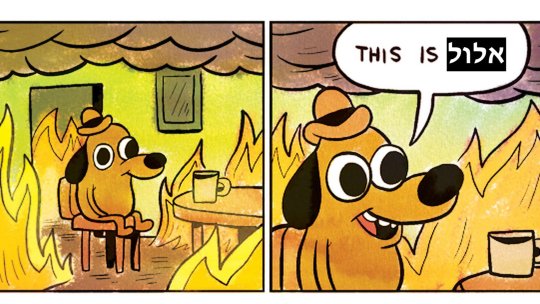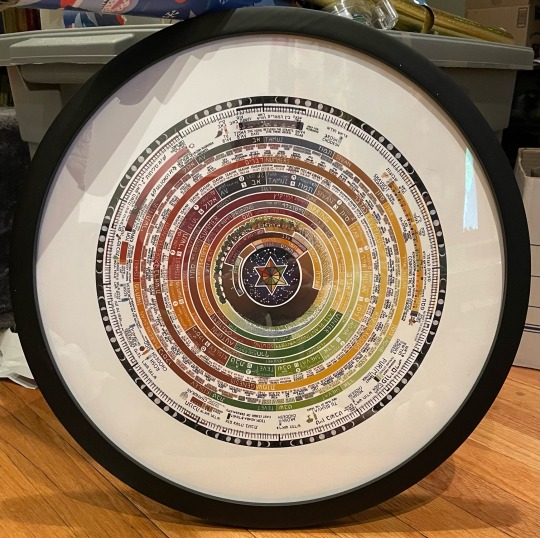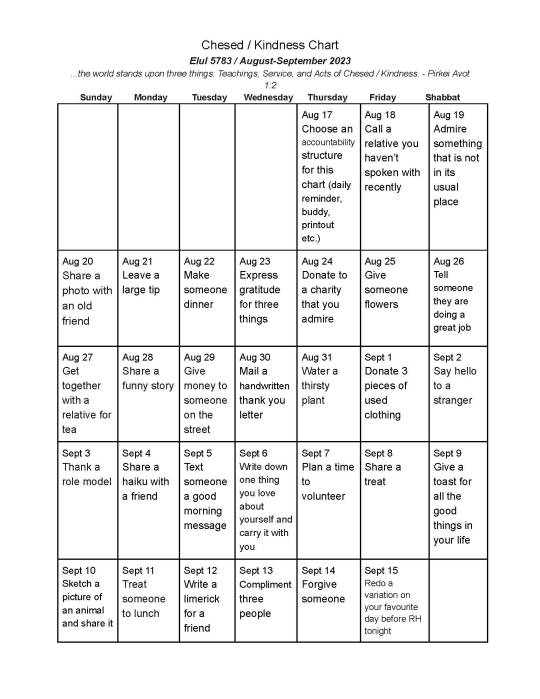#elul
Explore tagged Tumblr posts
Text
The Shofar Breaks Your Heart
by Dane Kuttler
When you give a girl a shofar – no, not a proper instrument of G-d, but a rough-cut horn with no real mouthpiece her aunt brings back from a trip to Jerusalem, don’t make it easy.
Put it up on the shelf in the living room where its curled promise of a shout will tempt her until she can reach it on tiptoe.
Tell her no one has ever found its voice, that she will only make it grunt, bray and sputter like the animal it came from.
Then give her a few years.
Give her an empty garage and a neighborhood Jewish enough to understand what it’s hearing so she can practice until tiny tekiot burst forth from the scrap of ram.
She will be the only one who can ever shape its sounds, can bend the call to tekiah, round off nine drops of t’ruah wailing, fling the anguished cry of a sh’varim from its mouth.
Let her brag about this. Remember that children are not humble creatures, that the simple act of being heard is their great triumph. Let her be heard.
Bring her to Hebrew school. Teach her the story of the rabbi who told his students that he would put the words of Torah on their hearts; that the words would only find their way in when the students’ hearts broke. Let her sit with that tale for as long as it takes for her own heart to shatter, for torah and poetry and forgiveness find their way inside,
play her Leonard Cohen. Let him croon about the cracks in everything, that’s how the light gets in, let her begin searching for light, ask her where she thinks the cracks come from, give her Auschwitz, give her Torquemada, give her pogrom and quota and blacklist, the ashes of all her burnt bridges, give her avinu malkenu, ashamnu, ashamnu, ashamnu,
watch her break her heart with her fist.
Give her the shofar. Let the horn steal her breath, let her begin to understand that she’s not holding a dead piece of animal, but a living prayer.
Teach her: after every blast you can hear the echo of the still small voice.
If you listen for it, you can hear the calls for the wild cries they are; salute them with a straight back when they yank you from your amidah; and should you hear a shofar blower struggle and gasp and strain for each call, imagine yourself a trapped animal, desperate to be heard.
When it’s over, Close your eyes.
Be. Broken. Here. Before G-d and your people. Be. Cracked.
feel the light and the words come in.
#they read this at shul tonight and it was so powerful and i thought i'd share it#jumblr#judaism#poem#poetry#shofar#rosh hashanah#high holidays#elul#jewish art#dane kuttler#yom kippur
2K notes
·
View notes
Text

Maggie Smith // "Goldenrod" (2017)
121 notes
·
View notes
Text

my friend made this back in 2020 but it still works today
781 notes
·
View notes
Text
Hello! I created this blog to share my joy in the Jewish calendar and Jewish history and Jewish diversity and complexity and humor and resilience.
Anon asks are off because this is a jumblr blog and I trolls aren't welcome. But asks are very much on. Please send me posts you think would fit the blog or Jewish anniversaries you think are worth commemorating here (and remember that the talmud tells us that whoever cites their sources saves the world, see Megillah 15a line 20).
#jumblr#jewish calendar#jewish holidays#jewish#judaism#jewish history#today's jewish holiday#adding month tags here to make past posts easier to find#nisan#iyyar#sivan#tammuz#av#elul#tishrei#cheshvan#kislev#tevet#shevat#adar#shabbat#erev shabbos
24 notes
·
View notes
Text

I found this MAGNIFICENT circular depiction of the Jewish calendar by Claymil on Redbubble (link is in their ig bio) and bought it immediately. I love that it’s sandwiched between celestial elements and includes the agricultural cycle.
I’m going to put 6 sawtooth hangers around the frame so the current season is always oriented up-ish. It would be even cooler if I could attach it to something that mounts to the wall and spins but I haven’t seen anything that fits the bill yet.
Edit: Also I cut it into a circle. It definitely did not come like that.
356 notes
·
View notes
Text
Hey fellow yidden: some motivation for you this Elul
So maybe this year you've done some backsliding on some mitzvot. So maybe you haven't davened as much as you would like. Maybe you missed opportunities to go to things in community because you just couldn't motivate yourself. Or perhaps there were things that you struggled to do individually.
Perhaps the reason that you missed opportunities for mitzvot is because you were afraid of missing out on something else.
Well, as a traditional egalitarian Jew who tries but has ADHD, depression, lots of executive dysfunction, a demanding job, relationships to maintain, and 900 hobbies, I feel you.
But fear not! I have two suggestions for ways to help you seek out mitzvot in every area of your life.
Suggestion the first: Weaponize the FOMO
At least for me, I'm always worried that if I daven as much as I would like to (as one example) I am going to miss out on [x] other thing. However, instead, sit yourself down and consider what one mitzvah you want to prioritize. Then, imagine never being able to do it again.
My friend, that day will come.
Mitzvot are for the living. A Jew being buried in their tallit has the tzitzit trimmed off first. Why? Because mitzvot are the project of the living and all we can know for sure about death is that it will come for all of us, eventually. If you believe in an afterlife, your deeds - good or bad - will accompany your soul on your way home. And you will be comforted and bask in the mitzvot you performed. And if you don't believe in an afterlife? Well, this is your one shot, and whatever deeds you leave behind is all that will be left of you someday.
Better wear those tzitzit now, then.
Suggestion the second:
Look for the kedusha in literally everything.
One of the truly amazing things about Judaism is that every moment, no matter how mundane, is full of opportunities to engage in mitzvot. Whether it's saying Asher Yatzar after using the restroom, washing your hands before meals, saying brachot before eating food, wearing certain clothing (tzniut, no shatnez, ritually significant like a kippah, etc.), being kind to animals (even insects), honoring your parents, visiting a sick or recovering friend, compromising with your spouse for shalom bayit, giving money to the poor, or simply reaching out to a friend who might be sad, lonely, and struggling - there are daily opportunities to connect and to infuse every moment of your life with holiness.
Judaism is so much about how we treat each other, our world, our bodies, and our communities, and these in turn are what help us to understand how to treat our souls and our relationship to the Divine. Judaism is about relationships. And the opportunities don't require you to go to shul, or don tefillin, wait for the high holidays, or give extravagantly. (Although those things are great if you want to do them, too!)
By design, the mitzvot are meant to allow you to connect with Judaism, with yourself, your world, and Hashem at every turn, simply by living your life. It's honestly a very old form of mindfulness, long before that was a buzzword.
So, weaponize that FOMO in one breath, knowing this is the only life we have, and in the next breath, really open your eyes to the opportunities that already surround you in every facet of your life. They are there if you look, and you will never miss out if you keep on looking.
158 notes
·
View notes
Text

Elul's gentle winds are rustling, urging us to heed the call to be a voice, not an echo.
You see, echoes are but pale shadows, fleeting whispers of something once real. Voices, on the other hand, carry weight, direction, and a splash of divine individuality. Ah, but how often we are tempted to be echoes, comfortably hidden in the chorus of conformity!
In Elul, the cosmic conductor raises their baton, and our life's music demands we stand apart, tune our instruments, and prepare to deliver a solo. Yes, your solo, not a mere reverberation of someone else's melody!
Think of your life as a grand, mysterious composition. An echo won't do. We're not here to simply bounce back the tunes of the times. We're here to be voices, resonating with the uniqueness and purpose that only we can bring.
As the Elul Shofar sounds its notes, let it be a reminder that your voice is no mere soundbite in the universe's song, but a profound symphony all its own. Don't let your melody get lost in the echoes of doubt or fear. Strum the strings of your heart and sing the song only you can sing.
Let’s not be parrots of the past, but pioneers of the present. In the orchestra of life, you're not the second fiddle; you're the soloist! So belt out your truths, embrace your divine spark, and may your voice ripple through the ages, long after the echoes have faded away.
Rabbi Yisroel Bernath
22 notes
·
View notes
Text
the king may be in the field, but what if I’m in the river?
20 notes
·
View notes
Text

As we step into the month of Elul, we are invited to pause and reflect.
Elul, pronounced /e-'lool/ and spelled אלול, is not just another month; it's a sacred time for personal introspection, a gentle call to come closer to ourselves, to others, and to something greater.
This is the time to let go of the burdens we've been carrying, to forgive ourselves for the times we’ve stumbled, and to remember that growth is a process.
There’s no need to rush or feel overwhelmed.
Instead, embrace this time as an opportunity to reconnect with your inner strength, to ask yourself what truly matters, and to make space for new beginnings.
Elul whispers that it’s never too late to return, to refine, and to realign.
Whether in small steps or big leaps, every effort counts.
Take comfort in knowing that this month invites softness, healing, and a fresh start.
You’re right where you need to be.
Step forward with peace, and trust the journey unfolding before you.
19 notes
·
View notes
Text

Raylan Givens
Elul- "The King is in His field"
15 notes
·
View notes
Text

mosaic of a basket of pomegranates, found in the Maon Synagogue, a 6th-century synagogue and archaeological site in the Negev Desert. photo credit to Avishai Teicher.
#elul#aesthetic#pomegranate#mosaic#archeology#jewish history#jewish art#maon synagogue#jumblr#jewblr#jewish#judaism
550 notes
·
View notes
Text

The Hebrew month of Elul begins tomorrow. It's a month that is meant to be focused on returning to the best parts of ourselves. If you find it helpful, here are some suggestions of daily acts of kindness (in Hebrew, chesed) for the month leading up to Rosh Hashana, the Jewish New Year.
91 notes
·
View notes
Text



Sunset on Lake Superior // Porcupine Mountains Wilderness State Park, Michigan
#september#elul#autumn#porcupine mountains#photography#michigan#lake superior#hehe thats my underwear on the line#these are from my campsite it was right on the lakeshore
27 notes
·
View notes
Text


hc: ulrike mostly reads books that elias picked up. ulrike had been admiring elias for so long they have 0 idea how to approach elias. a big fan of elul. mostly bcs im a sucker for rule breaker/rule abider trope. also three horsemen of ellie's image depictions:

6 notes
·
View notes
Text
“Return to Me and I will return to You.” (Malachi 3.7.). A king had a son who had committed a grevious sin and was exiled to a far country. After some time, the king begun to yearn for his son and sent a messenger to him, saying “Return to me.” The son replied. “I cannot return, for the way is too far.” Thereupon the king sent a message back again “Do not fear, but start on the journey and come as far as you are able. I will come the rest of the way to meet you.”
- Pesikta Rabbati 184
19 notes
·
View notes
Text

It’s almost hereee
121 notes
·
View notes